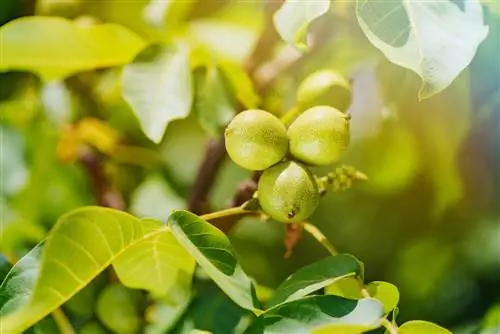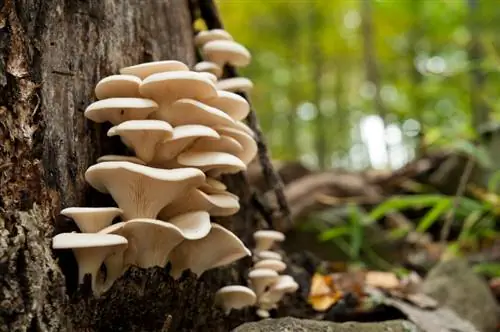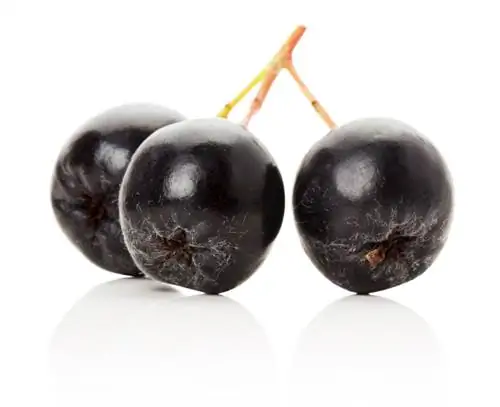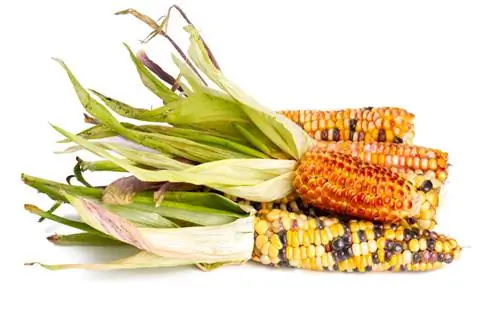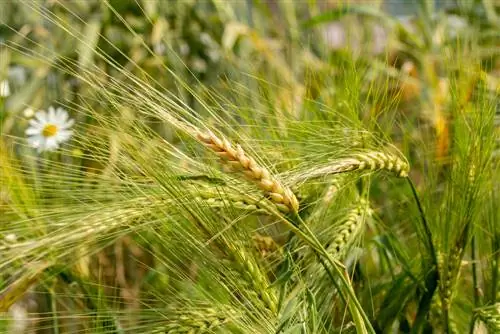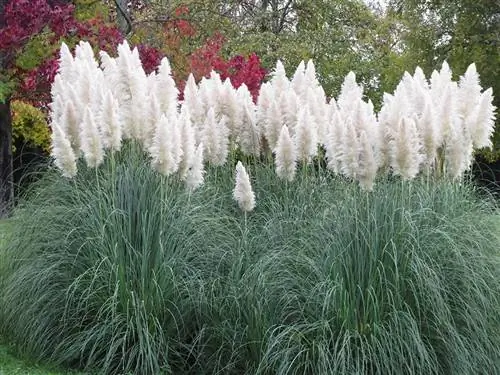- Author admin leonars@hobbygardeners.com.
- Public 2023-12-16 16:46.
- Last modified 2025-01-23 11:21.
Real walnut connoisseurs know: not all walnut trees are the same. There are many different varieties, some of which differ greatly from one another visually, in terms of their climate and soil requirements and in the taste of their fruits. Below we will briefly introduce you to ten selected walnut tree varieties!
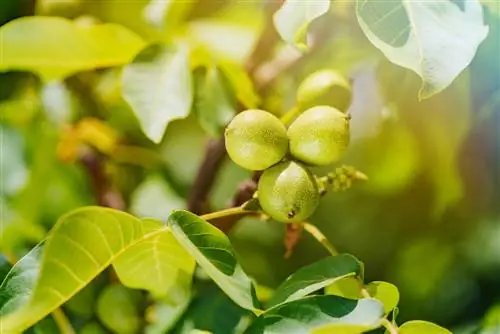
Which walnut tree varieties are there in Germany?
Common walnut tree varieties in Germany are Geisenheimer, Moselaner, Weinheimer, Spreewalder, Weinsberger, Kurmarker, Wunder von Monrepos, Seifersdorfer Runde, Franquette and Rote Donaunuss. These varieties vary in growth, frost and disease resistance, as well as the taste and yield of the fruit.
Note: These are mainly German varieties that thrive really well in this country. By the way, real walnut (Juglans regia) served as a base for all refinements.
Geisenheimer Walnut
- small-crowned variety
- needs 60 to 80 square meters of space
- is resistant to diseases
- don't like locations that are too dry
- emerges relatively late
- delicious fruits
- regular income at a good level
- Self-pollinator (single tree suitability)
Moselan Walnut
- strong, effective tree
- needs 100 to 120 square meters of space
- resistant to late frost
- Grows well even in dry locations
- nitrogen-rich soil is problematic
- vulnerable to Marssonina and bacterial burn
- prefers airy location
- large fruits with a fine taste
- balanced harvests
- reliant on cross-pollination (needs another walnut nearby)
Weinheimer Walnut
- medium to very fast growing
- needs 70 to 80 square meters of space
- emerges relatively late
- vulnerable to Marssonina
- feels comfortable in loamy and sandy soil
- tasty fruits
- good yields
- Self-pollinator (single tree suitability)
Spreewald Walnut
- medium size with spherical crown
- needs 70 to 80 square meters of space
- exercises early
- sensitive to late frost (due to early budding)
- vulnerable to Marssonina
- undemanding in terms of location and soil quality
- tasty fruits
- rich returns
- Walnut kernels relatively oily (reduced shelf life)
- Self-pollinator (single tree suitability)
Weinsberger Walnut
- small variety (crown diameter seven to eight meters)
- needs 50 to 70 square meters of space
- sensitive to late frost
- Solitary resistant to Marssonina and bacterial blight
- large nuts with excellent taste
- good yields
- Self-pollinator (single tree suitability)
Kurmarker Walnut
- impressive growth with a wide crown
- needs at least 100 square meters of space (not for smaller gardens)
- relatively frost-resistant (can also be cultivated in locations with low winter temperatures)
- but: sensitive to late frost
- also thrives in relatively moist locations
- excellent fruits (among the best table varieties)
- good yields
- Self-pollinator (single tree suitability)
Wonder of Monrepos
- fairly new variety, popular all over Europe
- growing strongly with a well-formed crown
- robust (also suitable for climatically unfavorable locations)
- resistant to Marssonina and bacterial blight
- delicious fruits
- good yields
- Self-pollinator (single tree suitability)
Seifersdorfer Runde
- particularly undemanding tree (optimally adapted to the climatic conditions in Germany)
- needs 65 to 80 square meters of space
- resistant to Marssonina and bacterial blight
- sensitive to late frost
- medium-sized fruits with wonderful taste
- begins to wear after four to six years of standing
- Self-pollinator (single tree suitability)
Franquette
- from France
- slow growing variety
- likes calcareous soil
- resistant to late frost (ideal for regions at risk of late frost)
- less susceptible to illness
- big, delicious fruits
- wears from the third year onwards
- is one of the most popular varieties
Red Danube Nut
- from Austria
- medium-sized with a sweeping crown
- needs 70 to 80 square meters of space
- sensitive to late frost
- vulnerable to Marssonina
- medium-sized, tasty fruits (red core as a special feature)
- regularly rich returns
- Self-pollinator (single tree suitability)

